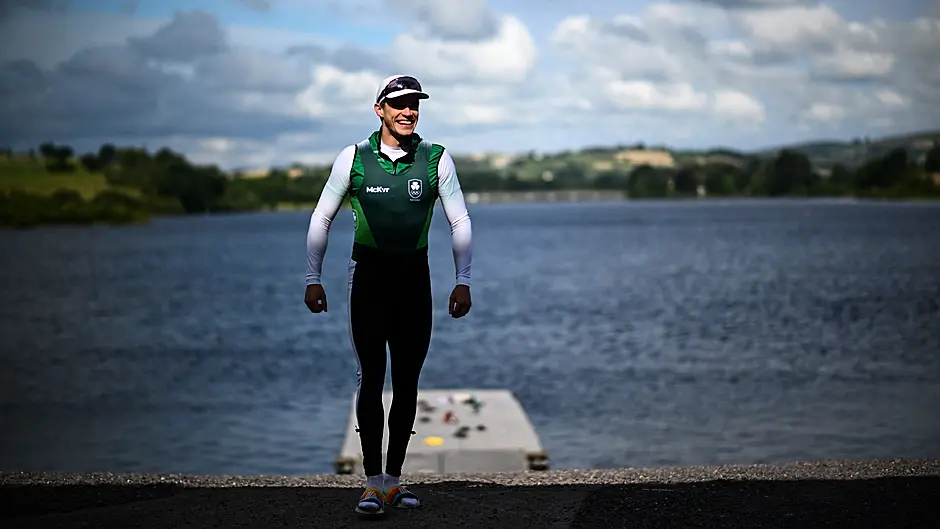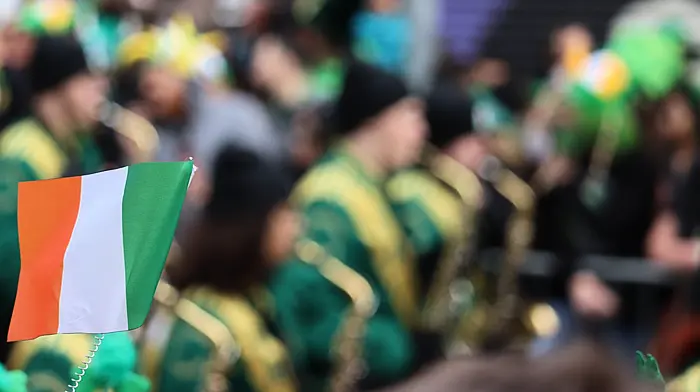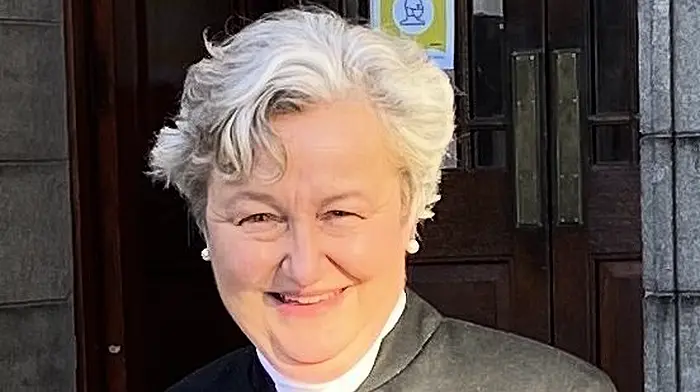The latest version of Fintan McCarthy that will rock up to Paris is the best yet – and ready to go out in a blaze of glory
*****
‘ENJOYMENT is probably a strong word!’ Fintan McCarthy laughs, as he is quizzed on Carlos Alcaraz’s belief that athletes have to enjoy suffering for their art.
On his way to the 2024 French Open title, the Spanish tennis sensation defeated world number one Jannik Sinner in a five-set, four-hour semi-final epic. Afterwards, Alcaraz explained, ‘You have to find the joy in suffering … you have to fight, you have to suffer, but as I talked with my team many, many times, you have to enjoy suffering.’
Olympic champion Fintan can relate to this – his sport has, after all, been described as the sport of masochists. Rowing is the king of pain; suffering is expected. Spread across the 2000-metre course that offers no moment of respite during roughly six-and-a-half brutal minutes, the hurt is everywhere: legs burning after pushing, arms like lead after pulling, lungs fighting for every drop of air, heart hammering. Blisters on their hands are their wounds of war.
‘You have to love it in some way to get through it,’ Fintan agrees, the Skibbereen rower offering his slant on Alcaraz’s thoughts. No pain, no gain – and it’s those gains that make the slog worthwhile.
‘For me it’s not so much being in the moment of suffering, it’s having it done and stacking up good session on good session, knowing you have finished a training block where you have made some really solid gains – that’s where I get the enjoyment out of a process as opposed to being sitting in the middle of a session going “this really hurts”. I don’t particularly enjoy that but once it’s over and you can appreciate what you’ve gained from it, I think that's where I get the most enjoyment.’
 READY TO ROCK: Fintan McCarthy is in relaxed form ahead of the Paris Olympics. (Photo: Ramsey Cardy/Sportsfile)
READY TO ROCK: Fintan McCarthy is in relaxed form ahead of the Paris Olympics. (Photo: Ramsey Cardy/Sportsfile)
Perhaps, though, it’s easier for the elite rowers like three-time world champion Fintan to endure the suffering, knowing he has a better chance than most of standing on top of the podium? Or is it harder to be the hunted, continually trying to break down barriers to stay at the summit, rather than the hunter?
He pauses for a moment.
‘There is no guarantee,’ he offers.
‘What has been good enough in the past, there is no guarantee that it will be good enough next week or next year so you have to push the limits all the time and go past what you think will be fine. You have to squeeze the most out of yourself and give the best you have on any given day, especially late in the season because there are not many days left.
‘Going to an Olympics, you want to make sure you haven’t left anything behind,’ he adds with the confidence of a rower who knows the incredible effort it takes to bring the big medals back to his ‘room in the roof’ at home in Foherlagh, a couple of miles outside Skibbereen town. A beam runs across his bedroom and hanging from it are the medals that turn heads: Olympic gold, three World gold and two European gold.
Fintan knows all about the grunt work that leads to the headlines, those regular 9am-to-6pm training days at the National Rowing Centre in Inniscarra, and now 27 years old he’s more confident in his ability to ride ‘the red line’ than ever before in the dominant Irish lightweight double he shares with his fellow Aughadown man Paul O’Donovan, another man oblivious to the pain but familiar with the rewards.
***
Fintan references ‘the red line’ a few times during this chat – but what exactly is this?
‘When we talk about the red line, it’s the point of no return, effort-wise, in terms of racing,’ he says, ‘Once you go past it there’s no coming back, you’re on the road to blowing up so you have to make sure you’re not going past it until the last minute or so of the race.
‘It’s the hardest pace that you can sustain for most of the race, and then if you have anything left to give it at the end, go for it.’
 HISTORY MAKERS: Fintan McCarthy and Paul O’Donovan celebrate winning gold in the lightweight men's double at the Olympics in Tokyo, the first Irish rowers to ever win Olympic gold.
HISTORY MAKERS: Fintan McCarthy and Paul O’Donovan celebrate winning gold in the lightweight men's double at the Olympics in Tokyo, the first Irish rowers to ever win Olympic gold.
Fintan has reached a point in his rowing journey where he knows how to ride that red line and still have something in reserve in that sprint to the finish – it’s one of the reasons he feels this is the best version of him as a rower.
In 2021, when he won that breakthrough Olympic gold in Tokyo alongside O’Donovan, that was the first year he felt comfortable in the Irish men’s lightweight double since winning his seat in 2019. Three years on from Tokyo, Fintan has grown inside and outside of the boat.
There’s an assertiveness to him now, that confidence growing with his ability to adapt to the challenges that each year brings. The man that prefers structure has had to embrace uncertainty at times during this shorter Olympic cycle, with each year different, but always with the knowledge that O’Donovan and himself know better than most what it takes to move their boat faster than everyone else.
There’s a reason their seats in this Irish double are safe: together, they are the best in the world, and believe they are better now than in Tokyo.
‘I have more training done, a bigger aerobic base, a bigger bank so I can hang on to the pace better in the middle of a race whereas in Tokyo I was relying a bit more on the sprint. We had a good middle of the race back then too, but now I am much more confident sitting in the pack, feeling good during the race and riding the red line knowing I have a bit in the tank for a sprint if we need it,’ he says.
Fintan feels he’s also more consistent, quipping that the ‘terrible performances’ are less common and less severe than before, replaced by ‘decent performances’ on a more consistent basis. His ability to stay grounded amidst the fanfare is also an endearing quality. He can be self-deprecating too, but behind those blue eyes is a man not weighed down by the expectation that surrounds himself and Paul O’Donovan as bankers to bring home another Olympic medal.
‘I don’t read into it too much,’ Fintan says.
‘We are the only ones who know what we have to do and what it takes to be in a position to win a medal. That’s all I am focussing on, getting myself into that shape and headspace where I know if I do what I am training for, the result will hopefully be good. If not, we prepared well and did our best, and it’s out of our hands then.
‘I don’t know if I have to deal with expectation, really. People can think whatever they want but it’s not going to change the outcome. It has been proven that we are not unbeatable and it’s not impossible for someone to come along and beat us. Instead of focusing on what people think might happen, we prepare to try and do our best.’
Those rare losses rankle though ….
***
Before finishing second in the A final at World Cup III in July 2023, Fintan and Paul had won 21 consecutive races stretching back to the 2019 World Championships. Then France pipped them by 0.09 of a second to win gold. Paul doesn’t like losing. Same goes for Fintan.
They might both consider themselves as quiet, preferring to let their rowing do the talking, but not winning riles them. Look at Fintan’s reaction to their third place finish at World Cup II in Lucerne this past May after Italy and Switzerland filled the top two spots, though the margins were tight – on Instagram the Skibbereen man described the result as a ‘solid dose of reality’.
Context is important here. In both World Cup regattas (2023 and ’24) it was Fintan and Paul’s first outing of the year together in the double, and this season Fintan missed the European Rowing Championships through illness. Their response to that surprise defeat in 2023 might be a sign of what will unfold at the Vaires-sur-Marne Nautical Stadium, to the southeast of Paris, next week – they romped to glorious gold at the 2023 World Rowing Championships, reasserting their position as number one. The bear was poked. And it has been again.
 GOLDEN WONDERS: Fintan McCarthy and Paul O’Donovan with their gold medals at the Tokyo Olympics.
GOLDEN WONDERS: Fintan McCarthy and Paul O’Donovan with their gold medals at the Tokyo Olympics.
‘We could have always skipped Lucerne and raced in World Cup III where we would have been in better shape, but we wouldn’t have learned as much,’ Fintan explains.
‘We had our top competition in Lucerne (Switzerland and Italy) and it was a better plan to race them unprepared and see what the margin was at that point in time, rather than miss out on racing them because less crews raced at World Cup III.
‘I am definitely glad we went to Lucerne even though we lost because we know what the margin was and what shape we were in. It’s about finding the way to close that margin and find a few more seconds.’
It’s a sign of Fintan’s growth that he feels more equipped to handle the setbacks. Disappointed to lose? Yes. But given their preparation against the flying Swiss and Italians, who won European and World Cup I gold respectively, it was easier to rationalise how a bronze medal (Paul and Fintan’s first together after seven gold and two silver) was added to their collection.
‘The reality is that day we were one second behind gold. The focus has been finding that second and more before Paris so we can try to defend our title,’ he stated, determined to bow out in a blaze of glory. This is the last Olympics to include lightweight rowing before it’s cut from the schedule, and the last gold medal up for grabs would be a welcome addition to the ‘room in the roof’.
‘Winning gold was the goal regardless, but it has an extra bit of meaning behind it,’ he says, and Fintan is confident that if Paul and himself produce their best, there will be enjoyment after the suffering.











